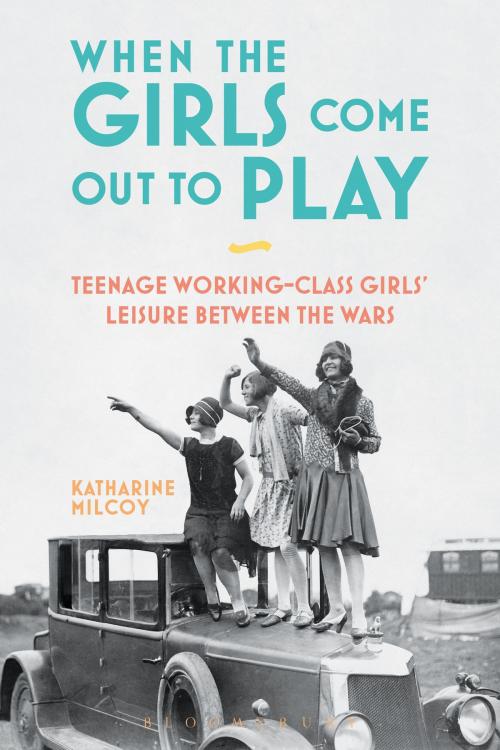When the Girls Come Out to Play
Teenage Working-Class Girls' Leisure between the Wars
Nonfiction, Social & Cultural Studies, Social Science, Gender Studies, Women&, History, British| Author: | Dr Katharine Milcoy | ISBN: | 9781474279611 |
| Publisher: | Bloomsbury Publishing | Publication: | September 7, 2017 |
| Imprint: | Bloomsbury Academic | Language: | English |
| Author: | Dr Katharine Milcoy |
| ISBN: | 9781474279611 |
| Publisher: | Bloomsbury Publishing |
| Publication: | September 7, 2017 |
| Imprint: | Bloomsbury Academic |
| Language: | English |
Filling a long-standing gap both in women's history and in the material history of class culture, this book is a unique and necessary reassessment of the social and cultural scene during the inter-war period in England. By combing over the everyday practices of working-class girls in 1920s and 30s England, including a sharp focus on Bermondsey south-east London and oral testimony from women who grew up in the period, Milcoy demonstrates the persistence and ingenuity with which these teenagers gained access to the commercial leisure culture of the day, from hairstyles and fashionable dress to films, music, and dances. She shows how this access had a startling ripple effect, transforming the way young women rehearsed and contested their identities so that play, rather than work, became the primary mechanism for defining subjectivity and constructing femininity. When the Girls Come Out to Play is a refreshing and nuanced take on the social and cultural history of England between the World Wars.
Filling a long-standing gap both in women's history and in the material history of class culture, this book is a unique and necessary reassessment of the social and cultural scene during the inter-war period in England. By combing over the everyday practices of working-class girls in 1920s and 30s England, including a sharp focus on Bermondsey south-east London and oral testimony from women who grew up in the period, Milcoy demonstrates the persistence and ingenuity with which these teenagers gained access to the commercial leisure culture of the day, from hairstyles and fashionable dress to films, music, and dances. She shows how this access had a startling ripple effect, transforming the way young women rehearsed and contested their identities so that play, rather than work, became the primary mechanism for defining subjectivity and constructing femininity. When the Girls Come Out to Play is a refreshing and nuanced take on the social and cultural history of England between the World Wars.















